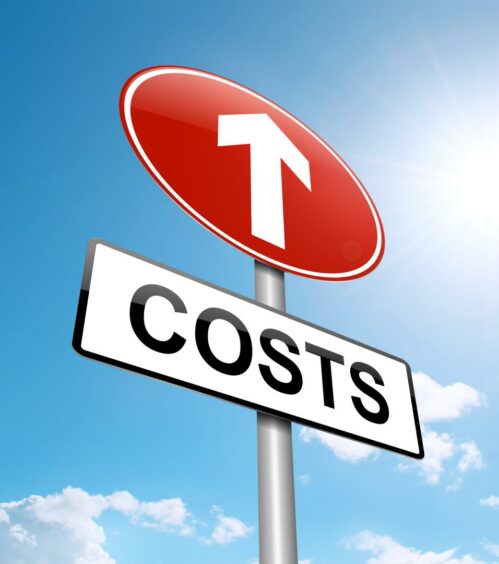Scotland’s businesses have been walking a tightrope over the past two years.
Trying to balance the challenges of Covid-19 and economic viability led to the permanent closure of thousands of firms at the peak of the pandemic.
But, with the threat of the Omicron variant diminishing by the day and the prospect of a further relaxation of government restrictions and guidance on the horizon, businesses are now increasingly confident about their ability to drive a strong economic recovery in the next financial year.
Recent figures from the Office for National Statistics showed the economy recovering at breakneck speed.
Last year’s economic growth figures were the strongest on record, marking out the UK as the fastest growing economy in the G7.
It is a trend economists are predicting will continue this year, giving firms a clear path towards growth and investment.
Although there is ongoing uncertainty in the marketplace as we head towards the closing stages of the pandemic, and we continue to collectively adjust to living and working alongside the virus, the economy remains vibrant and remarkably resilient.
‘Skyrocketing’ energy prices
But these strong growth figures only tell half the story.
Many of the challenges coming down the line for businesses now are linked to post-pandemic economic issues and the fiscal policies of both of Scotland’s governments.
Business growth continues to be strong, but increasing overheads are likely to lead to some belt tightening as the impact of inflation, rising raw material costs, labour shortages and skyrocketing energy prices start to take their toll on firms’ profitability.
Energy intensive businesses are reporting eye-watering increases in their fuel bills.
The lack of an energy price cap for micro, small and medium-sized enterprises is placing the future of many firms back into the balance.
The UK Government needs to get back round the table with businesses to discuss the impact of energy prices and examine what additional support can be put in place to help struggling firms to make ends meet.
Companies are crying out for government to take urgent action to limit their exposure to this potential deluge of debt at a critical point in their recovery, and at what should be a turning point for our economy as we move into a post-pandemic period of increasing stability.
‘Invidious’ choice facing businesses
The governments in Holyrood and Westminster have acknowledged the cost-of-living crisis facing consumers, and it’s important these challenges aren’t presented in isolation.
Employers face many of the same challenges as households.
A failure to provide businesses with the support they need now will only deepen the problems.
Many firms are already being forced into the invidious choice of absorbing these increasing costs or passing them onto customers by increasing prices.
The future of Scottish town and city centre economies is in the hands of government ministers.”
In its Budget for 2022-23 the Scottish Government confirmed the 100% relief on business rates will end on March 31.
There is a temporary 50% relief available for the first three months of the new financial year.
But this goes nowhere near far enough towards giving Scotland’s businesses the breathing space they need to recover and rebuild from two years of intermittent trading.
The future of Scottish town and city centre economies is in the hands of government ministers.
Parking levy ‘beyond belief’
It’s essential these ministers look again, carefully but urgently, at re-introducing and extending the business rates holiday in order to ease cost pressures on businesses.
At a time when firms want to cut red tape and reduce the tax burden placed on them to support Scotland’s economic recovery, they are also now faced with potential new taxes.
These come in the form of the workplace parking and transient visitor levies, and they will hammer businesses and their employees.
It is simply beyond belief for many of Scotland’s employers that instead of backing businesses and helping them get back on their feet, the Scottish Government is choosing not to scrap or defer these new charges.
Firms are being confronted by a whole raft of new upfront costs that risk undermining a return to growth.
Behind the statistics, businesses and government ministers know the immediate economic future facing us remains unclear.
It will be some time before it’s brought into focus as the global economy and markets recalibrate into a post-Covid model.
In the meantime, businesses need to see a clear plan for recovery, support to meet the financial challenges ahead of them, and the removal of excessive and burdensome business costs which are holding them back.
Economic opportunity and risk
We have the opportunity to revitalise Scotland’s economy and need to grasp it with both hands.
To support a sustained return to growth, businesses need government to work with us.
This can create a better trading environment that supports our joint economic ambitions.
The alternative would be a risk of our economy plateauing and our businesses falling behind international competitors.
Liz Cameron is chief executive of the Scottish Chambers of Commerce.



